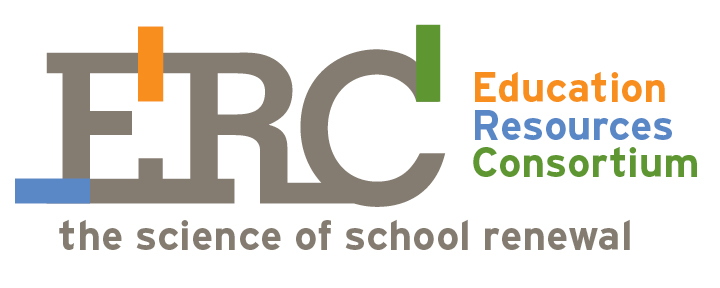The new Freshman Academy at Randolph (MA) High School has been in operation for four months and has many accomplishments to its credit. The effort began last spring with the announcement that the Nellie Mae Education Fund would provide support for an initiative to reduce drop-outs and suspensions and to improve school climate and achievement, beginning with students new to the school. Under the guidance and supervision of Asst. Principal for Instruction, Joshua Frank, the professional development and team-building for his 9th-grade team has been focused on a two-sided approach –building positive relationships and inquiry-based teaching. According to Frank, “we held our first Parent Breakfast and our first Back-to School Night. And in late September, we held the first of what are now regular ‘Good News’ meetings for staff to celebrate what was going well for our students and for us”.
Dr. Larry Myatt, ERC Project Coach for the effort, explained that the Randolph team’s effort “contains just the right ingredients, and has enormous potential to re-make the high school experience at the school. I consider it an exemplary initiative in its thoughtfulness, design and the impact it is having in building capacity among the teaching professionals. It’s in sync with what we know works in high schools”. Myatt praised Frank’s leadership and the dedication and effort of the teachers involved.
Parts of the “relationship-building” blueprint include developing respectful “safety” language, check-in’s for students as they start classes, using guided discipline techniques and conferencing rather than punishments, and beginning to introduce more thoughtful interventions when students present complicated patterns of behavior. On the instructional side, teachers are developing “essential questions” to help students connect topics to larger ideas in the world, and using a rubric for lesson design and instructional strategies to push and support their students towards challenging intellectual work. Behind the scenes, ERC Consulting Practitioner Katrina Kennett and Math Coach Richard Dubuisson are providing the Freshman Academy staff with iPad training, lesson-design support and inquiry strategies.
Frank says there are some signs of struggle in changing to a new way of doing business, “as we raise the academic bar”, yet other very positive commentary. Math teacher Erica Keane told the group in a Good News meeting that the term “shut up” among students has vanished from her classroom. English teacher Jamie Steinberg pointed out that her students are really starting to take ownership of their learning and reflected on her own emerging ability to sit back and let students do the work. She sees this as an indication of the power of high teacher expectations. Another math teacher, Frank Morreale, stated that he is learning to “bite my tongue and let students answer each other’s questions.” Science teacher Kyle Marshall talked about the power of conferencing to help a girl who had been “completely shut down” get back to work the following day. His Science counterpart, Karen Resendes, described having 15-20 students come after school to work on homework, “the first time so many students came after class.” Social Studies teacher Caitlin Walsh described “several great days of instruction” in which students transferred their understanding of perspective from a description of a football game to an 18th century primary source.
Special Educator Brian Cartwright reported on successful conferences with students, as well as a growing number of “regular customers” in the brand new, after-school Learning Center, something long missing in the school, and one of the key structures the grant has made possible. A “Student of the Week” initiative for each freshman team has begun, another indicator of “a very powerful, positive year for our students, and for us”, according to Frank.
